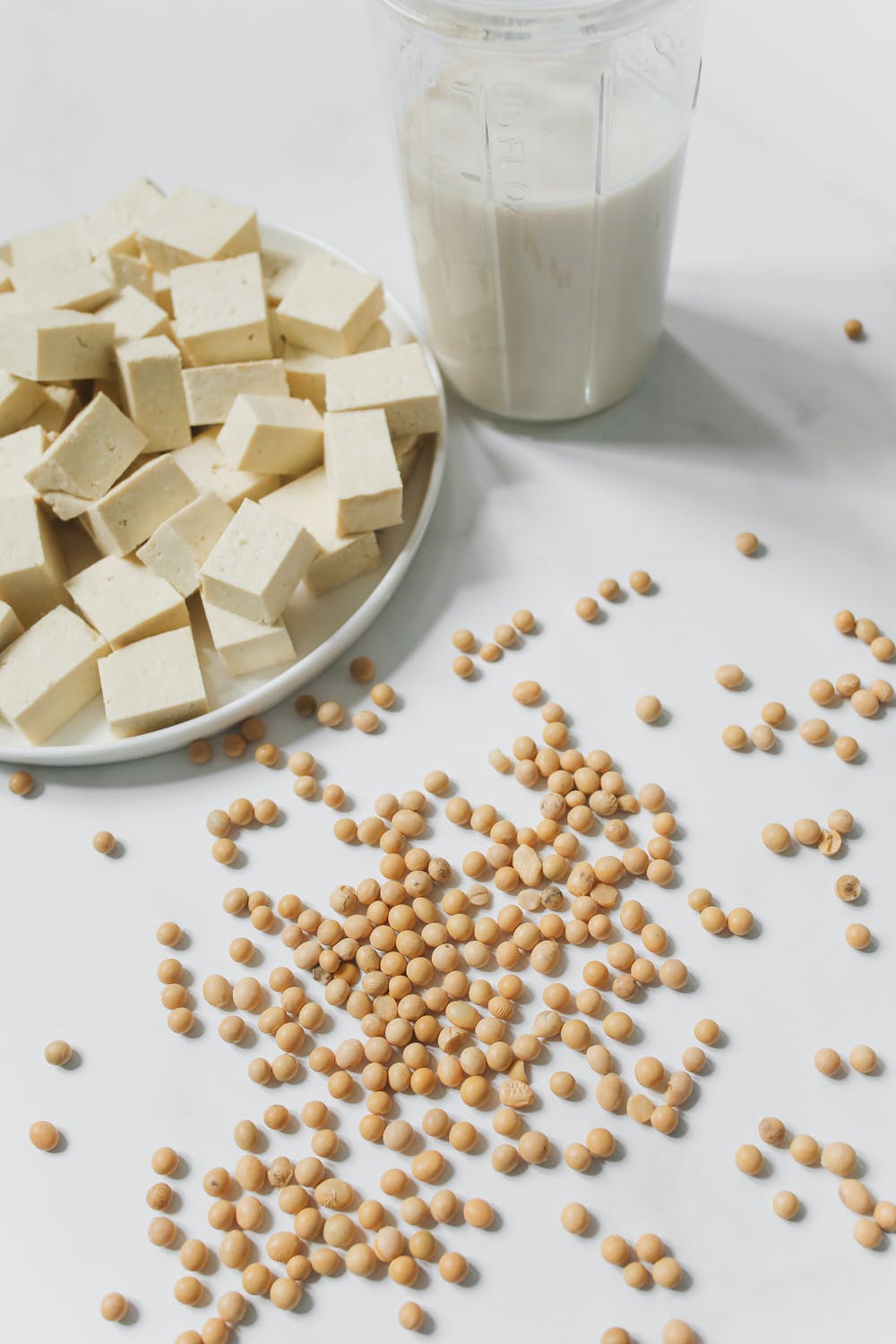
Top Sources Of Protein For A Vegan Diet
Share
Since Donald Watson coined the term “vegan” way back in 1944, veganism has exploded in popularity.
There are now over 70 million people worldwide that identify with being vegan.
There is irrefutable evidence that a plant-based diet is healthier and kinder to both our bodies and the animals.
A common misconception about a plant-based diet is that it lacks enough protein that meat delivers.
Proteins are essential compounds needed to maintain, repair, and develop muscles and tissues.
Beans, soy, legumes, and nuts, are all excellent sources of protein for someone on a plant-based diet.
In addition, there are numerous unsung heroes that are protein powerhouses. Here are some of our favorites!
Legumes
The number one source of protein for someone on a plant-based diet are the little protein powerhouses called legumes.
Per 100g, these beans contain the following protein content.
Fava beans - 26g
Lentils - 25.8g
Split peas - 24.5g
Red kidneys - 21.7g
Chickpeas (or garbanzo beans) - 19.3g
In addition, legumes are low in calories and high in dietary fiber.
Fiber is necessary to feed the healthy gut bacteria in our colon called probiotics, support healthy bowel movements and ensure a balanced, happy gut.
In contrast, meat contains zero fiber.
Legumes are an outstanding way of getting plant-based protein without the calories and saturated fat of meat and poultry.
Saturated fat can raise cholesterol levels and increase the risk of heart disease and other severe illnesses.
Oats
Oats contain an excellent amount of quality protein, including 80% of avenalin and a small amount of avenin.
A half-cup of oats containing about 40 grams of dry oats provides about 5 grams of protein.
Oats are also rich in fiber, folate, zinc, magnesium, and phosphorus.
Oats contain more protein than common cereals or grains such as wheat and rice. You can use oats in oatmeal or eat them raw with dairy-free yogurt. Yum!

Nutritional Yeast
Nutritional Yeast, commercially famous as yellow flakes or powder, comes in a cheesy flavor which makes it an essential and favorite ingredient in many dishes, including scrambled tofu and mashed potatoes.
It can also be sprinkled onto pasta dishes, popcorn, and soups.
Being a deactivated form of yeast strain, Saccharomyces cerevisiae, fortified nutritional yeast is rich in all forms of Vitamin B and minerals such as copper, zinc, manganese, magnesium.
In addition, 16 grams of nutritional yeast provides up to 8 grams of protein, making it an excellent plant protein source. Be sure to check the label to know if the nutritional yeast is fortified.

Green Peas

Green peas, the most commonly used vegetable in almost all recipes, are rich in phosphorus, copper, iron, zinc, magnesium, and all forms of Vitamin B.
160 grams of green peas can provide about 9 grams of protein and can satisfy 25% of the body's daily requirement of folate, manganese, fiber, thiamine, Vitamin A, Vitamin C, and Vitamin K.
Spirulina
Spirulina, also known as a blue-green algae, provides about 8 grams of complete protein on every serving of 14 grams.
Spirulina is also a rich source of manganese, magnesium, potassium, riboflavin, satisfying the body's 22% daily requirement of iron and 95% of the daily requirement of copper.
Studies say that phycocyanin, an extraordinary antioxidant with excellent anti-cancer and anti-inflammatory properties, is found as a natural pigment in spirulina.
Spirulina helps reduce blood pressure, improve cholesterol and blood cholesterol levels, and strengthen the immune system.

Seitan
Seitan is known to taste like meat and frequently used in mock meat products.
Soy-based seitan can provide about 25 grams of protein on the consumption of every 100 grams.
Besides being one of the richest plant protein sources, seitan is also rich in selenium with trace amounts of calcium, iron, and phosphorus.
You can easily find this ideal protein source in grocery and health food stores.
One can enjoy gluten in various dishes and various forms such as grilled, pan-fried, or sautéed.
Seitan contains wheat and gluten, and wouldn’t be suitable for folks with a gluten intolerance.
Soy Milk

Soy milk comes from soybeans, and is rich in Vitamin B12, Vitamin D, and calcium.
A single serving of soy milk containing about 224 ml can provide about 6 grams of protein, making it an excellent alternative for dairy milk.
You can easily enjoy the drink alone or in other baking and cooking recipes.
Fortified cereals and soy milk often contain vitamin B12, a bonus for vegans. The vegan diet lacks B12 as this vitamin can only be found in animal-based food.
Wild Rice
A cooked cup of wild rice containing about 164 grams can provide about 7 grams of protein.
In addition, wild rice contains bran and is rich in Vitamin B, fiber, copper, manganese, magnesium, phosphorus.
Wild rice is much more nutritious than long-grain rice varieties such as basmati as it contains about 1.5 times more protein.

Quinoa and Amaranth
Quinoa and amaranth are considered pseudocereals rich in fiber, magnesium, manganese, complex carbs, phosphorus, iron, and other vital minerals.
A cooked cup containing about 185 grams of quinoa and amaranth can provide about 8-9 grams of protein, making them complete protein sources, unlike other pseudocereals and grains.
Nuts And Other Seeds
Nuts, seeds, and products derived from them are rich in Vitamin E, all forms of Vitamin B, protein, iron, potassium, selenium, calcium, antioxidants, and other plant compounds.
A serving of 28 grams of nuts and other seeds can provide about 5-7 grams of protein.
While choosing nuts and other seeds, note that roasting and blanching can damage the nutritional content in nuts.
and finally...
Hemp Seeds
Hemp seeds are known to reduce inflammation and relieve other conditions such as skin problems, menopause, and premenstrual syndrome.
You can sprinkle them onto smoothies, add them to oatmeal or your morning muesli, or use them in salads.
A serving of 3 tbsps of hemp seeds can provide about 9 grams of protein.
In addition, hemp seeds are also rich in iron, zinc, calcium, selenium, magnesium, omega-3, and omega-6 fatty acids.
So come check out our awesome store of 100% vegan products today!

